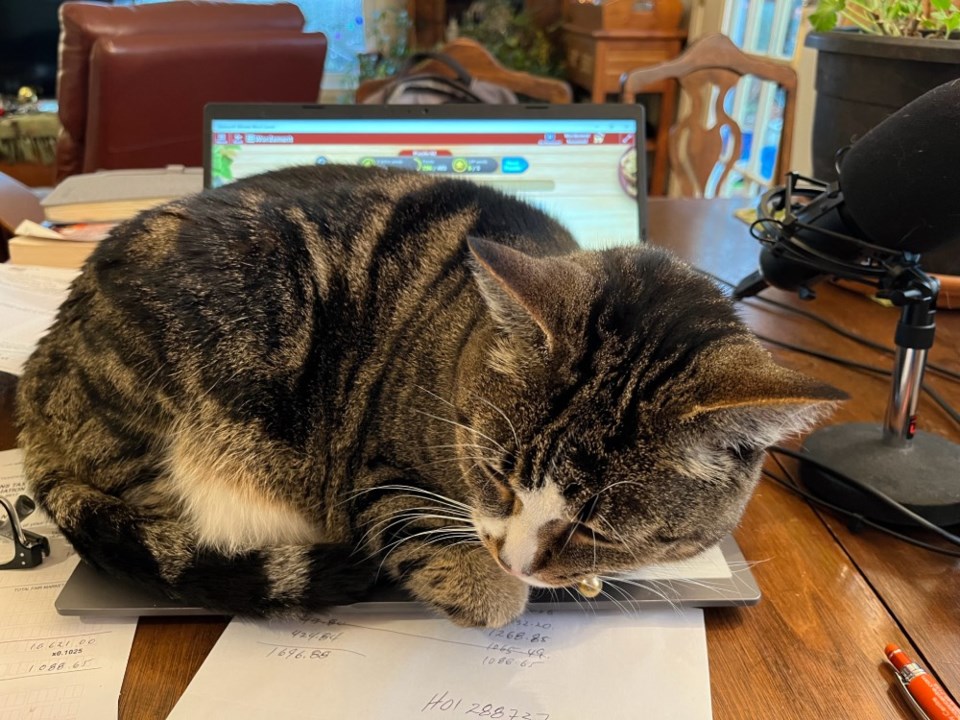Recently, I wrote an article about “compassion fatigue” – that it’s a very real “thing” that can afflict people in ministry. But lately, I’ve found there’s another “fatigue” that can hit anyone: anger fatigue.
In a previous chapter of my life, I aspired to be a stand-up comedian. That ambition ended when I realized I had a professional responsibility to be funny, but along the way, one club manager tried to encourage me by saying, “You’ve got a lot of anger in you: let’s hear about it.”
I didn’t think I was all that angry, but I tried to follow his advice, and my act flopped like a Brazilian soccer player.
(I think I stole that joke, too. You’re welcome to it.)
Certainly, we hear about other people’s anger, and in recent years, anger appears to be increasing as a factor in public discourse; and the underlying causes of anger are becoming increasingly irrational.
Politicians of pretty much every political stripe trade on it. Many talk-show hosts have turned it into an art form. Activists leverage it. (English majors get angry at people who use “leverage” as a verb.) Pop culture icons are often angry about something – usually very personal – and sell a lot of records or books with it. Individuals use anger to gain superiority or even create their identity. People who you would think don’t have anything to get angry about come up with something.
We get angry about changes in society. We get angry when things don’t change. We get angry about new property developments. We get angry about a lack of housing. We get angry at those who are unshakable in their position. We get angry at those who can’t make up their minds.
We especially get angry about things over which we have no control, which leads to getting angry at whomever we think is responsible.
When actor John Krasinski created “Some Good News” during the pandemic and good news proved so popular that the show was sold to a major media company, people decided that was bad news and got angry.
We get angry at the media for telling us how angry people are and how angry we should be.
And frankly, I’m angry about that.
Or, more to the point, I’m tired of it – and I think a lot of us are.
I think what people are really tired of is the way that anger divides people against one another. Anger at a situation (e.g. deforestation for the sake of development) leads to anger at people themselves (e.g. the developers and the *&^%#!!! politicians who allow it), which leads to anger at anyone who agrees with them or tries to offer a tempering position (e.g. “Well, if it’s for housing that a family can afford in today’s economy ….”).
The other day while driving, I found myself thinking about the latest thing that was making me angry. (Don’t ask me what it was.) And I suddenly said to myself, “Stop. Just. Stop.” I took a deep breath and made a conscious decision to stop looking for things to be angry about. All at once, the world looked a lot brighter, in spite of (or even because of) the rain that was falling.
Of course, one could avoid anger simply by not following the news. But it’s hard even to smile with your head in the sand: we need to know what’s going on, and on a spiritual level, to be aware of what to pray about.
A better way to address anger is to have a cat on-hand. It’s been scientifically proven that stroking a cat and the purring that comes with it (the cat purring – not you: if you find yourself purring, you may need to see a professional) releases serotonin and dopamine – the “happy chemicals” in our bodies.
But cats aside, the Bible offers a solution. Psalm 4 states, “Be angry, and do not sin.” Being angry, per se, is not wrong, but it’s what you choose to be angry about and what you do with that anger that matters. The Psalm goes on: “Meditate within your heart on your bed, and be still.”
In other words, lie down, chill, and the answers will start to come: “act”, or “leave it alone”, or “look at it this way ….”
The Apostle Paul echoes Psalm 4 in one of his epistles, and adds, “nor give place to the devil” – recognizing that any divisions among people – especially those caused by anger -- are not what God wants for us.
Paul also offers a solution – the equivalent of taking that deep breath and telling yourself to stop looking for reasons to be angry: “… whatever things are true, whatever things are noble, whatever things are just, whatever things are pure, whatever things are lovely, whatever things are of good report, if there is any virtue and if there is anything praiseworthy, meditate on these things.” (Philippians 4:8 NKJV)
Do you notice two recurring themes there? One is to slow down, which is not easy in this world where the instantaneous nature of social media encourages people to weigh in immediately with their (invariably angry) reaction. The other theme is to make a conscious decision to think about other things – to seek out and focus on good things in the world with the same diligence that we seek out things to make us angry. I believe that, as we do more of that, we’ll find there is more peace in our own lives: a peace we can share with those around us.
Drew Snider is a pastor at the Mustard Seed Street Church in Downtown Victoria. He has also written an e-book, God At Work: A Testimony of Prophecy, Provision and People Amid Poverty.
You can read more articles on our interfaith blog, Spiritually Speaking at https://www.timescolonist.com/blogs/spiritually-speaking



